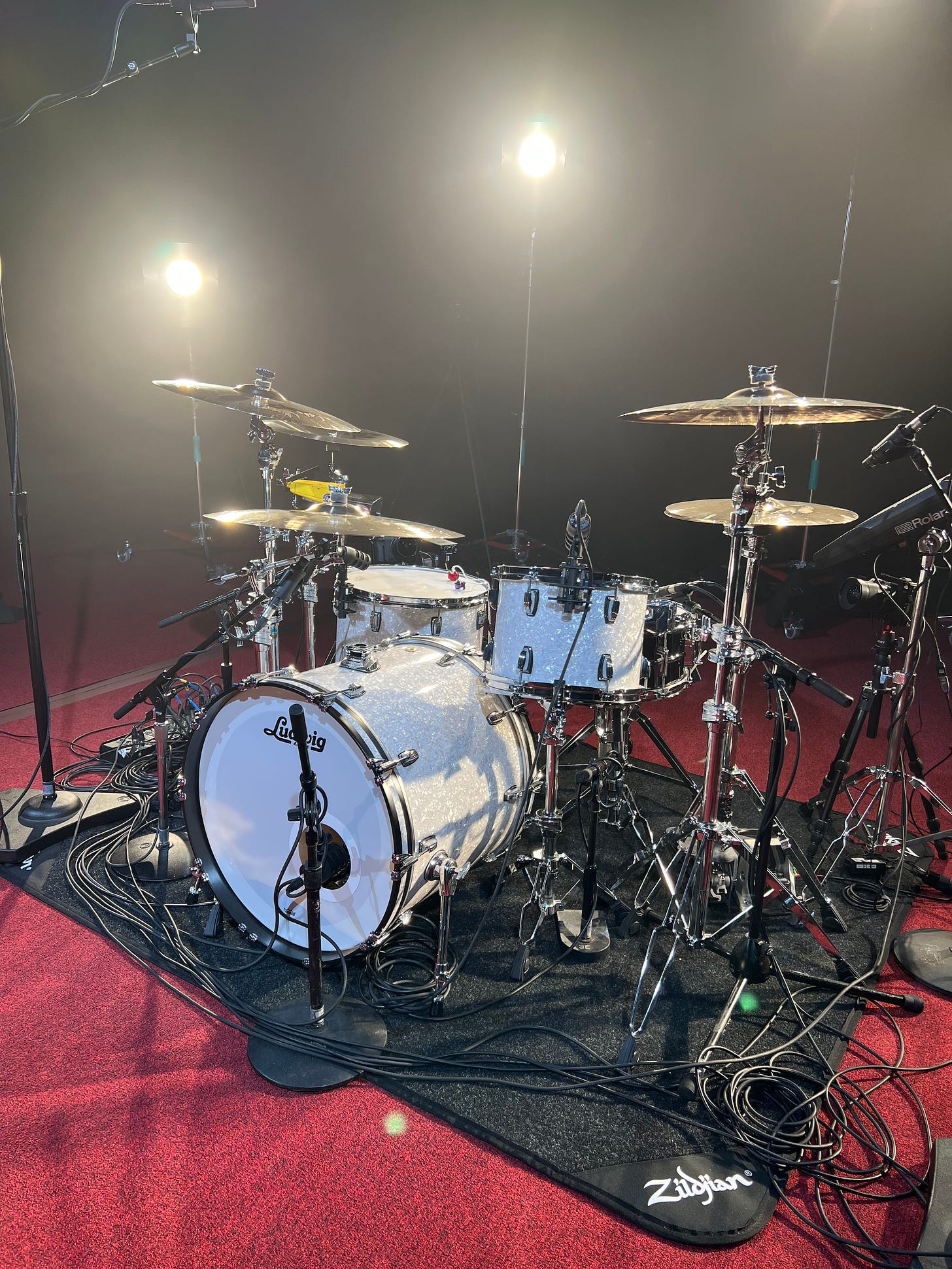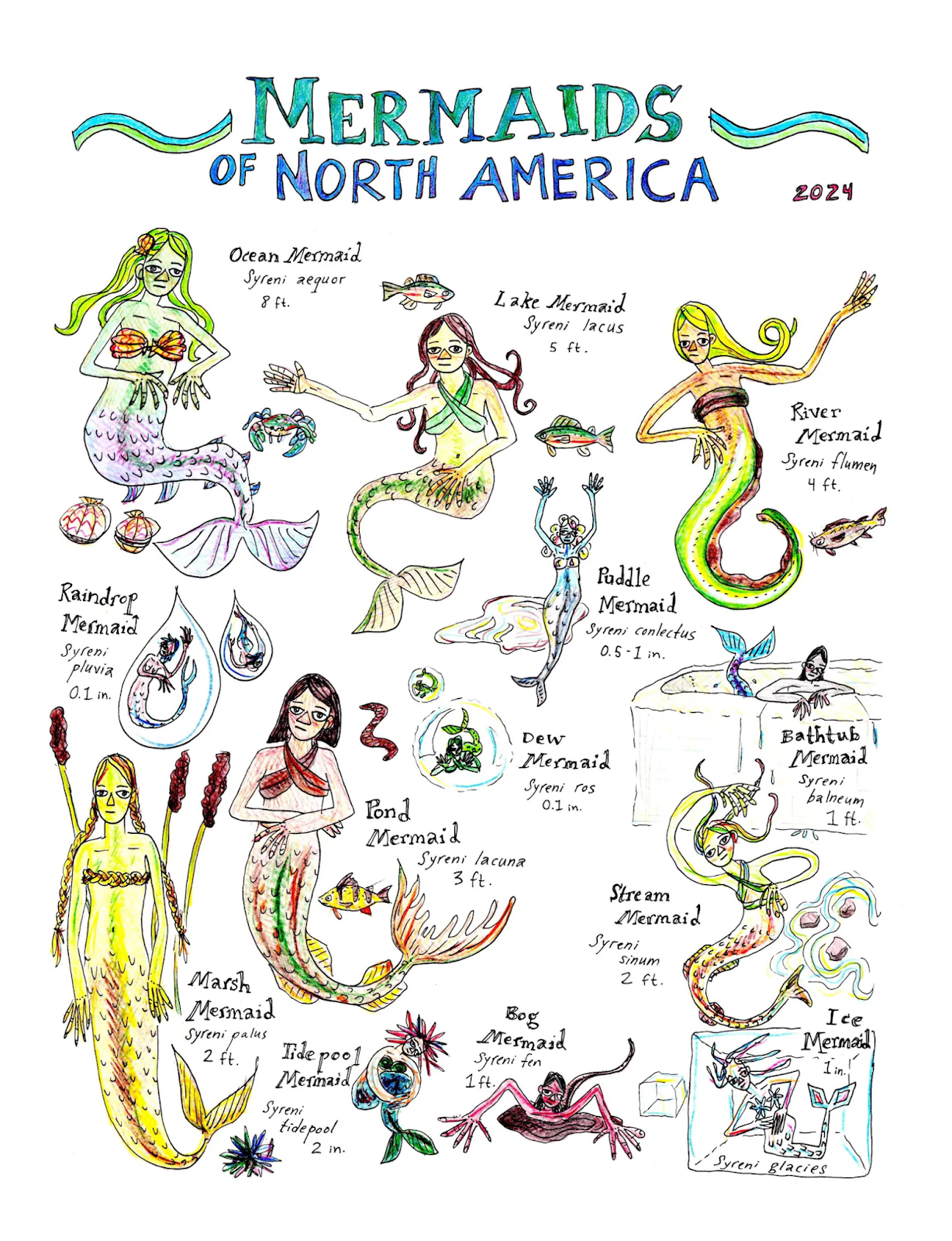Sean Siff | November 19, 2024
The Adult (Instrument) Learning Edition
On Zildjian, stage-fright, and patience.
Sean Siff (SS) is a private pilot who has worked in marketing in the aviation industry. He previously wrote the Flight Simulator Edition.
Sean here. In a recent Saturday WITI, there was a link shared to a YouTube video of a piano player who recorded his journey from zero to 2,500 hours of playing time. It was amazing to see his improvements as he played progressively more difficult pieces. That video caused me to think about how far I’ve come trying to learn to play the drums as an adult.
I started formal lessons before the pandemic, but those came to an end when Covid-19 closed my local music school and my family and I moved to a new state and town. Continuing to play drums meant I had to keep learning on my own, and find new musicians to grow with.
To hold myself accountable, I decided to log the time I spent drumming in a small flip notebook, as I was curious how many hours I was actually playing. Since what you play is more important than how much you play, I broke my time playing into four categories of practice: 1) Skill building, 2) Playing to songs, 3) Playing live with other musicians in practice or live sessions, and 4) Recording small song projects with musician friends. After a year, I assumed I’d hit between 500-1,000 hours. But in reality, it was much closer to 100 hours—cue sad trombone sound.
Why is this interesting?
Well, has my sporadic, 100 hours per year gotten me anywhere beyond being a perennial beginner? I may not have a YouTube video to plot my progress, but my short answer is: absolutely. Not only have I definitely made improvements, but learning to play the drums has also given me far more than I have given it. Here are a few of the many things I’ve grown so far from this journey:
Facing a life-long fear. I have near-debilitating stage fright. For some, it’s “butterflies in your stomach,” but for me, it’s more like there’s a murmuration of starlings in there trying to burst out. My drumming teacher, Patrick, helped change my mindset about live performance by reminding me that one of the main purposes of drumming is to make the audience feel something, preferably movement towards the stage where you are playing and not out the door. When my friends and I played our first real show in front of a small audience, our playing motivated a few couples to stand up and start dancing, and we didn’t even have to bribe them. It was a very rewarding moment to be the cause of this movement in others.
Drumming teaches patience and practice. Recently, I spent a short time employed at a drum cymbal company called Zildjian. At 401 years old, they are one of the oldest companies in America. Their master cymbal craftsman is named Joe Pallai, and on the wall behind his desk, he had written: “There are no shortcuts to greatness.” That’s what drumming teaches those of us who are not musically inclined or do not have any natural talent. Every small improvement on the drums in the face of life’s other obligations has taken a lot of effort, patience, and practice. It is the learner’s journey, that long hike towards the peak of that far-off mountain top.
Drumming teaches better listening. Learning the drums has also made me a better listener to music. I can now hear the individual instruments in songs, in ways that I couldn’t readily distinguish before. Becoming an active listener to music has taught me how to count the time signature of the song in my head (or out loud, which annoys my wife and children), and hear chord changes, more layers of instruments, and the movements between a song’s parts. With active listening, I have discovered new parts of my favorite songs, some that I have been listening to for decades. In addition, as I have chased inspiration from drummers across different genres, my music listening has expanded to a wider range of artists and musical styles.
Our friend Edith Zimmerman—an occasional WITI contributor and author/illustrator of the excellent Drawing Links—has started an Etsy store to sell her art. We like promoting our friends, and you should be getting your holiday shopping done early. Shop her full store here.
Drumming teaches the player how to communicate in a musical language. Playing drums requires communicating with other musicians in a language that isn’t spoken but is heard and felt. As a beginner, I never expected to reach a level of playing where I could start to have that musical conversation with another musician in a live practice session, but I have.
Sadly, I’ve heard other adults in my peer group tell me that they don’t pick up learning a musical instrument because they “won’t ever be good enough.” Why play an instrument if you can’t come close to the skill of the greatest players? But as an adult learner, it’s not about being better than others, but finding the joy in small continuous improvement. There’s a lot of accomplishment and happiness to be found there, and I hope you’ll seek it out. If you decide to pick up the drums, or another instrument, let me know how it goes. (SS)


